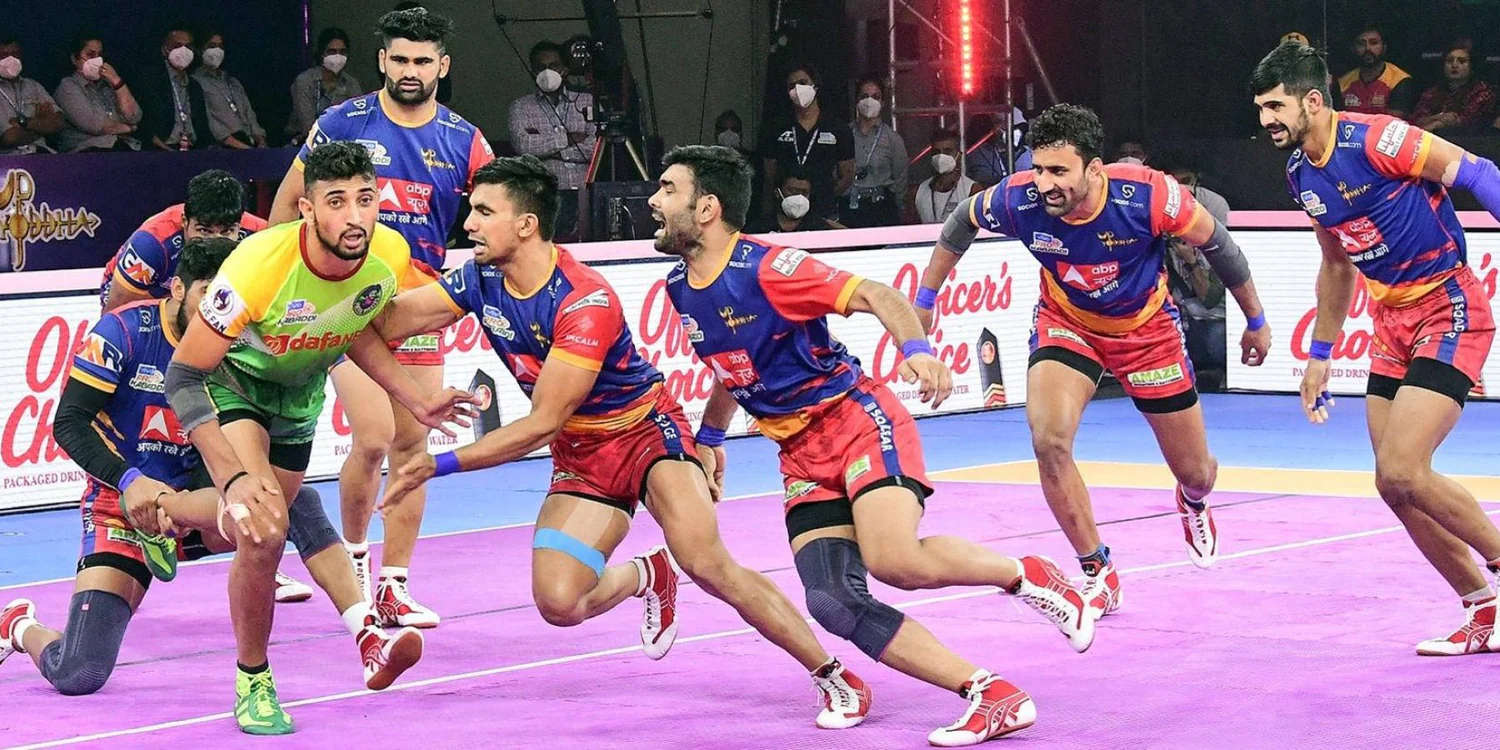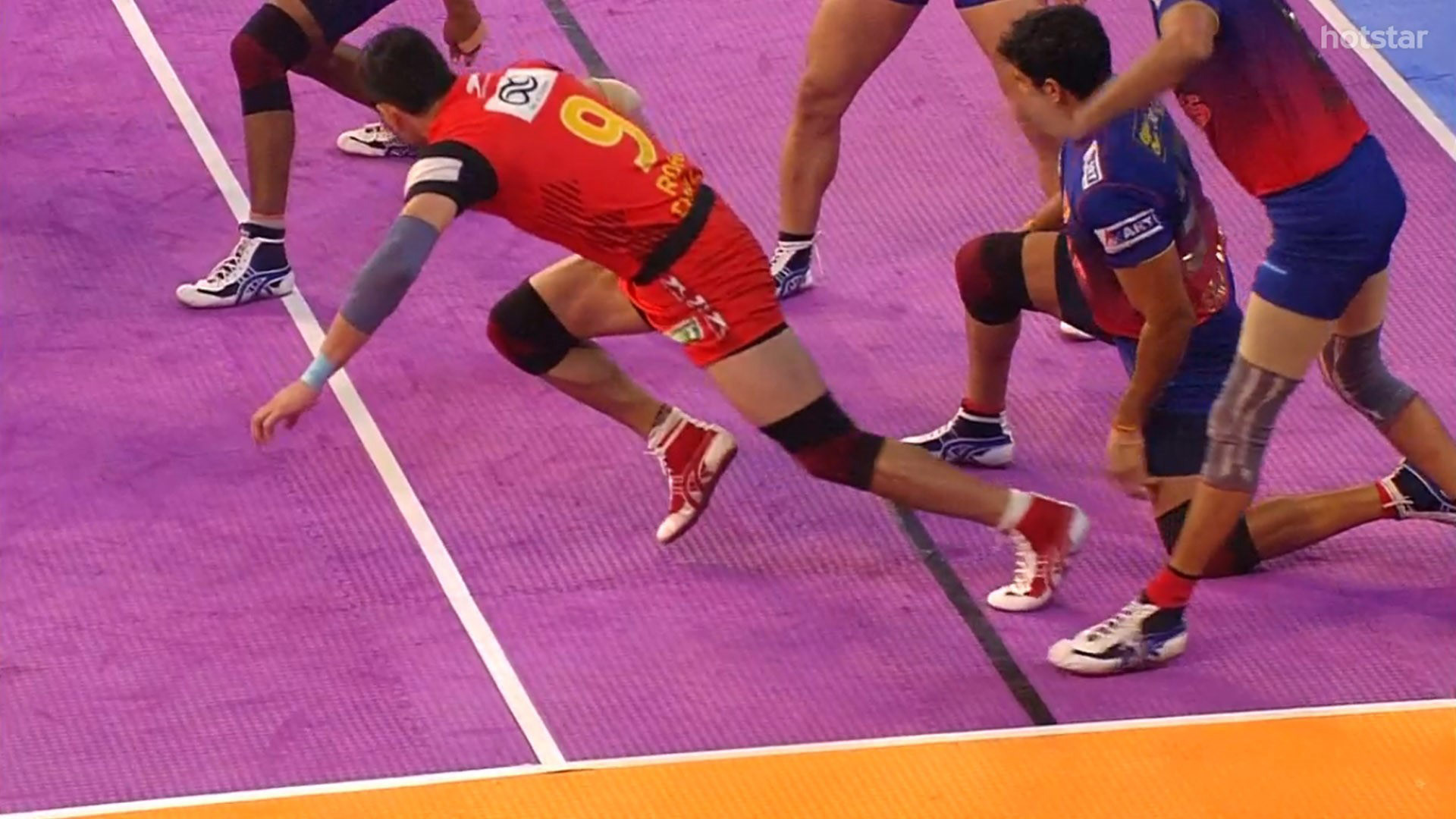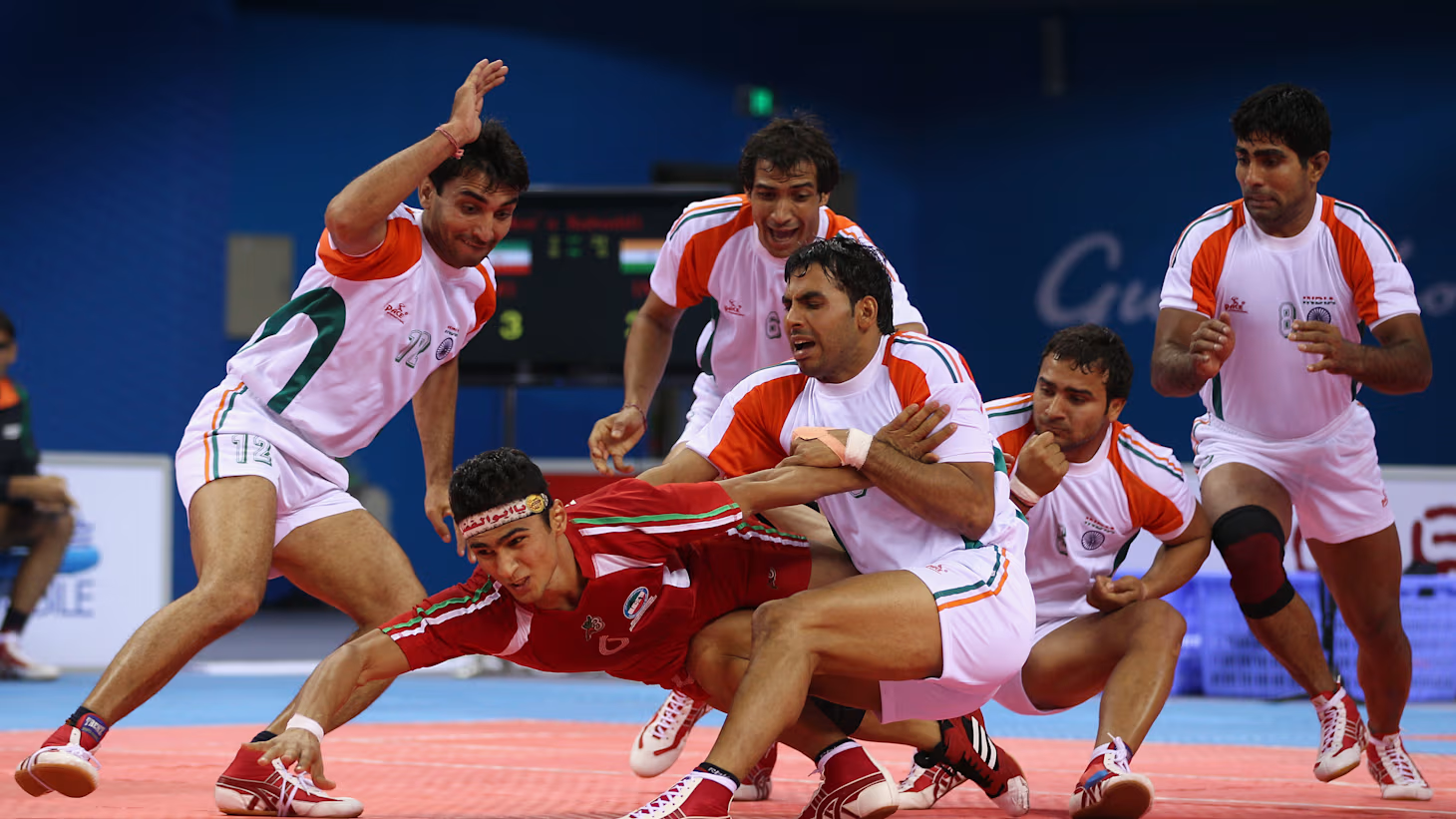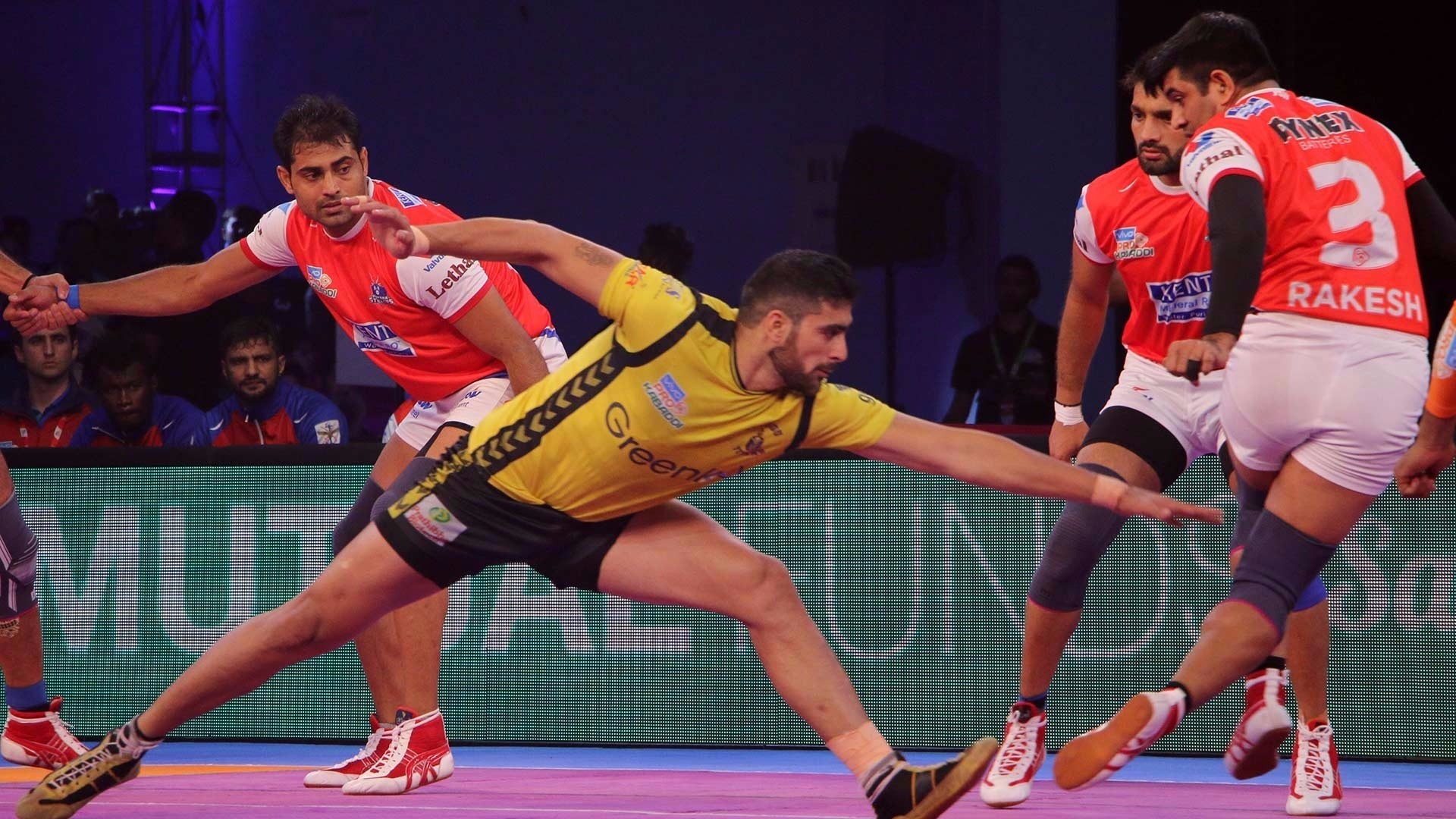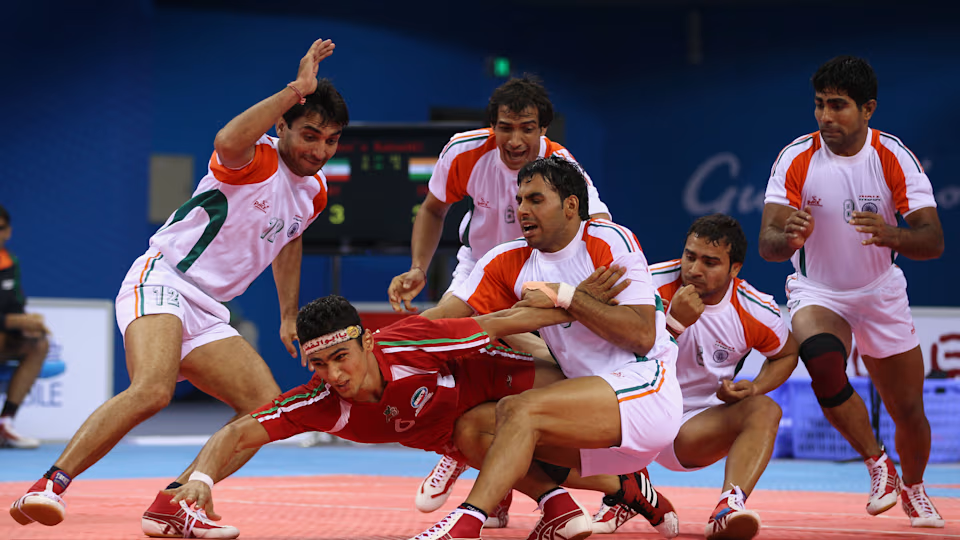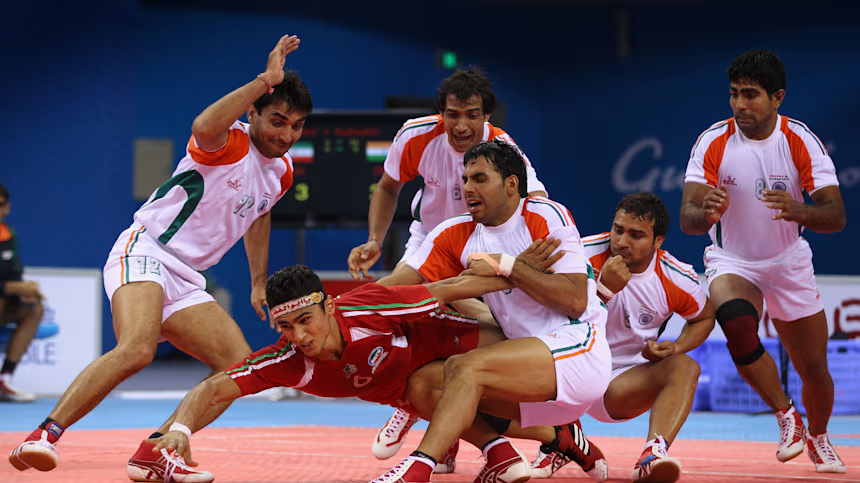In Kabaddi, as with any competitive sport, players must adhere to the rules and maintain discipline throughout the game. Fouls and violations occur when players break the rules, and these actions can significantly impact the outcome of the match. This article explores the common fouls and violations in Kabaddi, the penalties associated with them, and how players can avoid committing them.
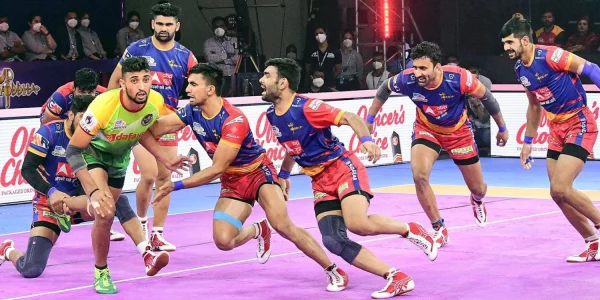
-
Types of Fouls in Kabaddi
Kabaddi has a variety of rules designed to ensure fair play. A foul occurs when a player violates one of these rules, either intentionally or unintentionally. The most common fouls in Kabaddi are related to raiding, defending, and conduct on the mat.
Key Types of Fouls:
- Raider Violations: Raiders must adhere to specific rules while attacking the opposing team. A raider foul occurs if they stop chanting “Kabaddi,” fail to return to their side of the court after tagging a defender, or leave the court during a raid.
- Illegal Tackles: A defender commits a foul if they tackle a raider using illegal methods, such as grabbing them by the neck or making unnecessary contact that could result in injury.
- Timeout Violations: Teams are allowed to call timeouts, but excessive delays or improper timeout requests can result in a foul.
- Unsportsmanlike Conduct: Players who argue with the referee, use offensive language, or engage in behavior that disrupts the game may be penalized for unsportsmanlike conduct.
-
Penalties for Committing Fouls
When a foul is committed, the opposing team may be awarded a point or receive a penalty, depending on the nature of the violation. It’s essential for players to understand the consequences of their actions to avoid negatively impacting their team.
Common Penalties:
- Point Deduction: A raider or defender may lose a point if they commit a foul, such as failing to chant “Kabaddi” or making an illegal tackle.
- Free Raid: If a player commits a foul during a raid, the opposing team may be awarded a free raid, where they can attempt a successful attack without interference from the defenders.
- Suspension: For severe fouls, such as violent behavior or repeated violations, a player may be temporarily suspended from the game, leaving their team short-handed.
-
Major Violations and Their Consequences
Certain violations in Kabaddi can have significant consequences, especially if they are committed at a critical moment in the game. These violations disrupt the flow of the game and may result in substantial penalties.
Key Violations:
- Stalling the Game: If a player or team delays the game unnecessarily, such as taking too long to initiate a raid or return to their side, they may be penalized. This is often referred to as “time-wasting.”
- Excessive Physical Contact: While Kabaddi is a contact sport, excessive or dangerous physical contact, such as punching, kicking, or headbutting, can result in a foul and even disqualification.
- Dissenting with the Referee: Players who argue with or show disrespect to the referee can be penalized. This behavior not only disrupts the game but also undermines the authority of the referee.
-
How to Avoid Fouls and Maintain Discipline
Maintaining discipline is essential for players in any sport, especially in Kabaddi, where one mistake can have a significant impact on the game. By understanding the rules and keeping a calm, focused mindset, players can avoid committing fouls and stay within the bounds of fair play.
Tips for Avoiding Fouls:
- Know the Rules: Familiarize yourself with the rules of Kabaddi, including specific guidelines for raiding, defending, and player conduct. Understanding the rules will help prevent unintentional violations.
- Stay Calm and Composed: During high-pressure moments, it’s important to stay composed and avoid reacting impulsively. Keeping your emotions in check can prevent unsportsmanlike conduct fouls.
- Be Aware of Your Actions: Always be aware of what you’re doing on the mat. Whether you’re raiding or defending, focus on executing your moves within the bounds of the rules to avoid fouls.
- Respect the Referee: Always respect the referee’s decisions, even if you disagree. Arguing or showing disrespect can result in penalties and disrupt the flow of the match.
-
Managing Penalties During the Match
Once a penalty is imposed, teams must adapt their strategy to account for the disadvantage. Whether it’s losing a point, having a free raid against them, or playing with one less player, managing penalties is a key part of Kabaddi strategy.
How to Manage Penalties:
- Adjust Your Strategy: After a penalty, teams should quickly adapt their strategy to minimize the impact. For example, if a raider is penalized, the team can focus more on defense until the next raid.
- Stay Focused: It’s easy to lose momentum after committing a foul, but staying focused and sticking to the game plan is essential to bouncing back.
- Use Substitutes Wisely: If a player is penalized or fatigued, use substitutes to ensure the team stays strong and avoids further fouls.
